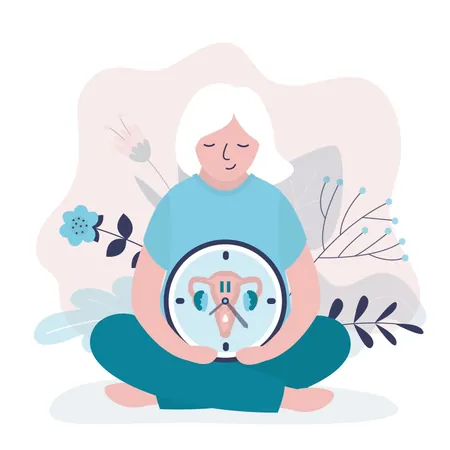
The Surprising Truth About Menopause: What Every Woman Needs to Know
2024-12-09
Author: Wai
As my girlfriend Laurie and I navigated our 50s, she sighed and mused, “Elephants have it easy.” It struck me that we were discussing menopause, and how unlike humans, elephants don’t experience it. The irony, of course, is that 25 years earlier, our conversation might have had a completely different tone. Back then, Laurie might have remarked, “Elephants certainly have it tough, with their long pregnancies and ability to bear offspring throughout their adult lives!”
Pick your battles, ladies.
Research shows that menopause is a uniquely human experience, only shared with orcas, certain toothed whales like belugas and narwhals, and Ngogo chimpanzees. But is it too bold to say this experience should be labeled “womenopause”?
Menopause is a natural phase of life, a biological signpost marking the end of ovarian function. It is important to note that this is a process driven by the depletion of ovarian follicles—better known as eggs. In contrast, men produce sperm throughout their lives, evidenced by superstar Al Pacino who, at 83, welcomed a new child with a partner half his age. Legal, yes, but it certainly raises eyebrows.
Women, however, are born with a fixed number of eggs. When these eggs start to dwindle, the brain kicks into overdrive, sending higher levels of follicle-stimulating hormone (FSH) and luteinizing hormone (LH) into the bloodstream in a last-ditch effort to stimulate the ovaries. Unfortunately, when the ovaries have reached their limit, menopause takes over.
As a physician, I regularly measure blood levels of FSH and LH to confirm menopause. This stage can bring a plethora of challenges: weight gain, hot flashes, night sweats, thinning hair, anxiety, depression, reduced libido, and sleep disturbances, to name just a few. Not to forget, it can lead to joint and muscle pain as hormonal imbalances make women more susceptible to injuries.
On a personal note, my initial sign of menopause was an unnerving whooshing sound in my ear, leading me to feel like I was living a scene from Edgar Allan Poe's "The Tell-Tale Heart." After conducting some research, I discovered this could be a symptom of menopause—not a ghostly heartbeat after all, just me adjusting to this new phase of life.
To deepen our understanding, back in 1991, the National Institutes of Health launched the Women’s Health Initiative Clinical Trial and the Observational Study to assess health risks for postmenopausal women. In 2002, findings revealed a connection between hormone-replacement therapy (HRT) and breast cancer, leading many women to halt their treatments. However, further research discovered that the relationship is more nuanced than initially thought.
By 2017, the North American Menopause Society had updated guidelines, indicating that for women under 60 or those within ten years of menopause, HRT could be beneficial when without other medical concerns. Women with a history of breast cancer, however, should refrain from this therapy, and those with a uterus should consider progesterone alongside estrogen to avoid the risks of endometrial hyperplasia, a precursor to uterine cancer.
Navigating hormone therapy can be complex, but with the right guidance from healthcare professionals, it offers potential relief from numerous menopausal symptoms and even improves bone health, skin vitality, heart health, and sexual wellness, particularly with short-term use.
Ultimately, this leads to the larger question: Why do some species, like humans and orcas, experience menopause at all? Is it an evolutionary strategy to enhance the survival of the species by allowing older females to assist with the upbringing of younger generations? Rather than quickly passing on, we live for decades beyond our reproductive years, making the most of life post-menopause.
Reflecting upon our earlier conversations, I now find myself in agreement with Laurie’s younger perspective. While elephants may not enjoy many years beyond their reproductive phase, we humans are blessed with the opportunity to thrive in this non-fertile phase of existence. Menopause may mark the end of one chapter, but there’s an entire book of life still to be written—one that is filled with experiences, joys, and endless possibilities, regardless of our menopausal status!




 Brasil (PT)
Brasil (PT)
 Canada (EN)
Canada (EN)
 Chile (ES)
Chile (ES)
 España (ES)
España (ES)
 France (FR)
France (FR)
 Hong Kong (EN)
Hong Kong (EN)
 Italia (IT)
Italia (IT)
 日本 (JA)
日本 (JA)
 Magyarország (HU)
Magyarország (HU)
 Norge (NO)
Norge (NO)
 Polska (PL)
Polska (PL)
 Schweiz (DE)
Schweiz (DE)
 Singapore (EN)
Singapore (EN)
 Sverige (SV)
Sverige (SV)
 Suomi (FI)
Suomi (FI)
 Türkiye (TR)
Türkiye (TR)